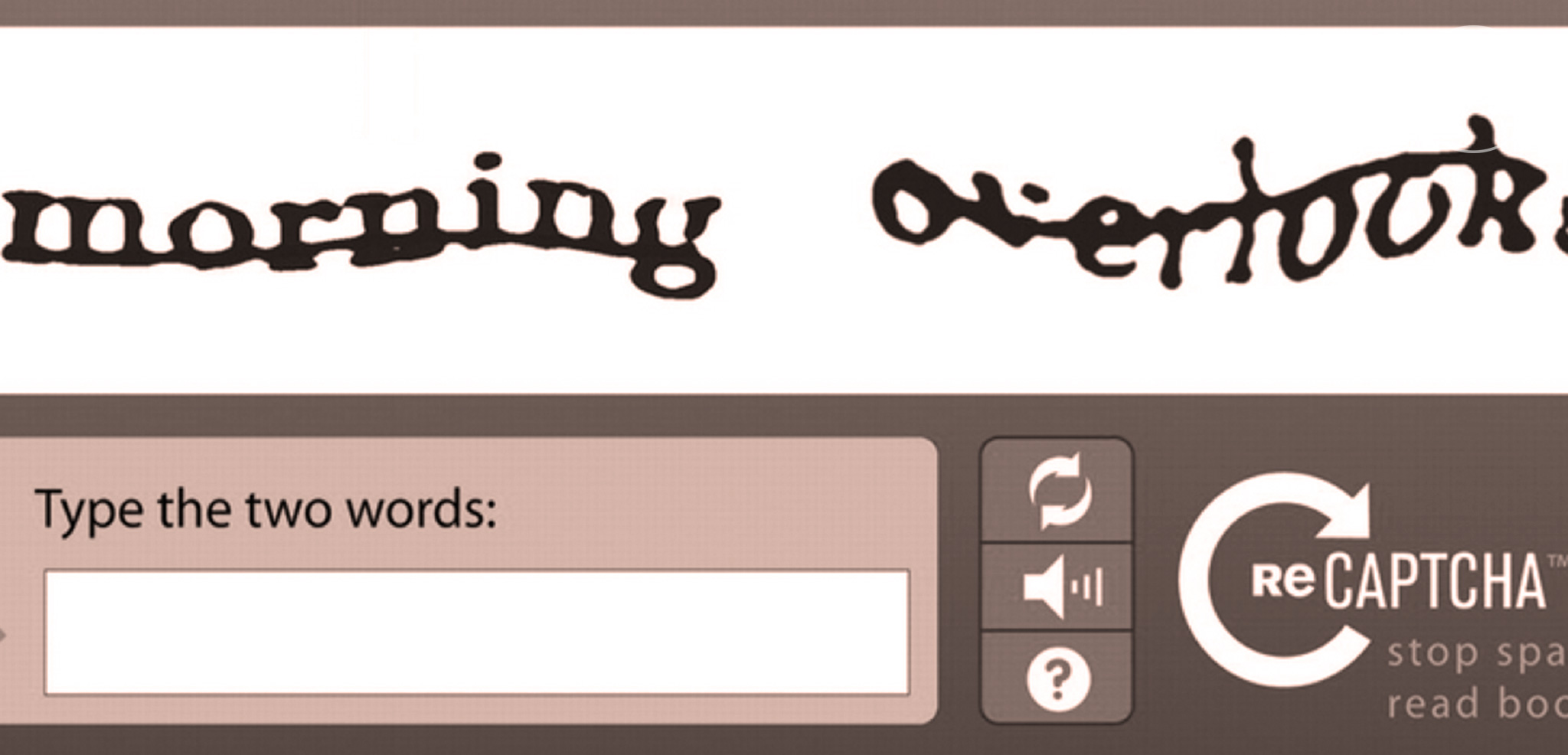
Fascinating talk by Luis von Ahn on TED.
I had no idea about the scope of CAPTCHA, or rather RECAPTCHA, in helping to interpret text in printed sources too old for Optical Character Recognition to accurately decipher. So all the time wasted typing in those wobbly words presented to you when trying to authenticate something on facebook et al is actually contributing to a collaborative interpretation of text in old sources beyond the scope of OCR and that actually requires the human touch. And makes use of all the lost time involved in typing in those authentifications. Incredible.
The concept is being reapplied to language translation in a soon to be launched site, Duolingo (currently beta) with the idea that automated translation of written language (yes, we are taking language here, not old print copy) is good, but not that good. The tech, so Luis explains, is fifteen to twenty years away from pragmatic accuracy. And so ‘recapchta’ will manifest in this new site launch that will help people learn languages via the process of translation. In the process the submitted translations, or rather an algorithmic amalgam of these translations, will help to ‘translate’ the as yet untranslated vastness of the www. The claim is that the learner site will both teach learners language AND translate the web. Luis shows a translation via beginner learners using the pre-launched beta site that pretty much matches that of a professional translation. Amazing.
Now note that this does not mean that any one beginner learner can match that of a professional translator, but that, as with the old print interpreting RECAPTCHA process, the code can amalgamate a group response to frame the final attempted translation. This in itself is beautiful coding and worthy of much praise.
But as a language-learning approach? Luis claims that the learners of the test beta site ‘learn it as well as the leading language learning software.’ Meaning Rosetta Stone. If you are not familiar with Rosetta Stone, it certainly is the leading software in terms of sales and marketing. Pedagogically it is bog-standard communicative language teaching sans teacher. Take any good human-taught language teaching course from, say, fifteen years ago and it attempts to model the experience. So to claim to rival Rosetta Stone is of interest, but hardly a breakthrough in language pedagogy.
The claim is also blissfully free of real evidence or citation. It’s a TED talk.
In 1855 Pedro Carolino’s published a translation-based textbook English as She is Spoke, an early hint at the perils of approaching language pedagogy via translation, and the grammar- translation method as a workable methodology was thoroughly discredited in the 1950s. It did suit and benefit some learners, but the vast many failed to learn during the long hegemony of the approach.
Now Luis is one smart cookie. His endeavor is certainly creative and possibly noble, but as far as learning is concerned it smacks of the hubris of techy triumphalism and ignores the last forty years of applied-linguistic and pedagogical research. His loudly applauded claims that the ‘business model’ is sound in that it is $500 cheaper than a Rosetta Stone course is laudable in that Rosetta Stone is very much an emperor with no clothes – or rather all clothes and no emperor. But there is so much more to actual language teaching that a) Rosetta Stone and b) tech in general…as yet.
Online or computer-based language learning has to date never come close to what can be experienced in a good language teacher’s classroom. Luis ‘business model’ can be perhaps applauded if Rosetta Stone was the only alternative. But it is not. The human experience is still vital to learning a language. As with Luis’ prediction that accurate automated translation is fifteen to twenty years away, it would seem that at least the same would apply to online, non teacher-based language teaching.
As Mark Twain said of English as She is Wrote, ‘Nobody can add to the absurdity of this book, nobody can imitate it successfully, nobody can hope to produce its fellow; it is perfect.’ We’ll see how this applies to Duolingo. Though I must admit, it does sound like fun.